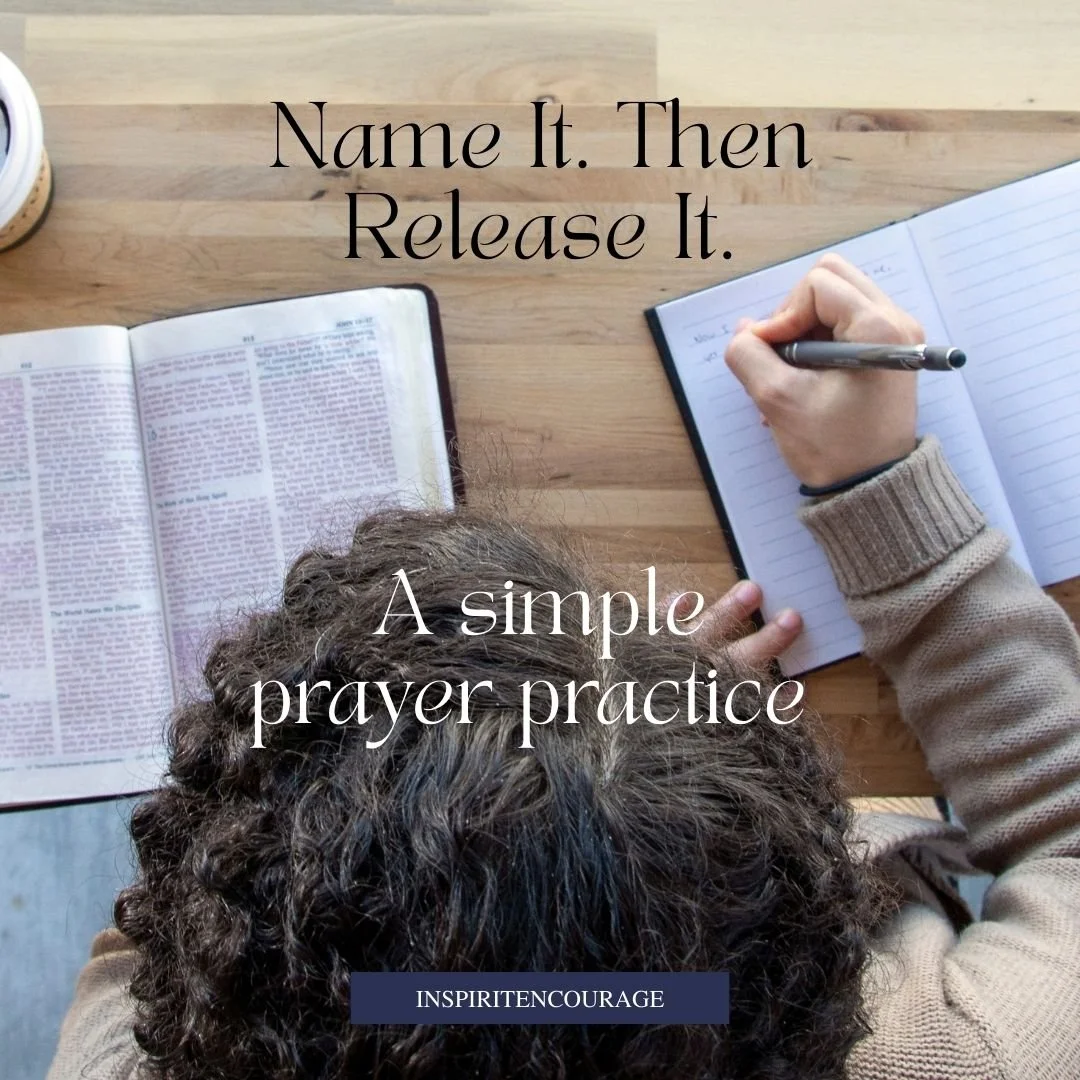Name the Debt (So You Can Release It): A Practical Prayer Exercise
After a hard phone call, I stood at the sink and felt that old loop start—what I should’ve said, what they should’ve said and done. I was hurting and called out a simple “help,” but the knot stayed. On my walk that evening I was still mulling it over. Then it clicked: I was trying to forgive, but I was only reviewing the hurt—not the loss. There were things I hadn’t even named. I didn’t know what I was handing to God—only that it hurt. That blocked me.
Why naming helps
The Psalms invite us to pour out our hearts, not tidy them up (Ps. 62:8). Naming the loss isn’t drama; it’s truth before God. Naming the loss keeps me from arguing with my pain and lets me bring it to Jesus as it is. When I can say, “I lost trust when a promise was broken,” I’m not rehearsing the scene to the offender; I’m speaking the truth to God so I can place the debt in His hands.
How this began for me
After that walk, I tried something small. Instead of pages and pages in my prayer journal, I wrote one simple sentence: “I lost time I won’t get back.” The next night: “I lost safety in that environment.” Then I prayed out loud, “Lord, this is the debt. I place it in Your hands.” No fireworks—just a little space in my chest. When the memory flared the next day, I did the same thing. Repeating wasn’t failure; it was formation—like turning the wheel of a ship and giving the wake time to smooth.
What this practice is (and isn’t)
Naming the debt isn’t minimizing harm or canceling consequences. It’s clarity. It’s the difference between saying “that was hard” and saying “I lost dignity in that room.” From there, I can take wise steps—honest conversation, restitution where appropriate, outside help when needed—without asking resentment to power the engine. Releasing the debt to God does not erase boundaries; it often makes them cleaner (1 Cor. 13:6; Prov. 22:3).
What I actually write (and why I set it up this way)
When I need it, I write it down. I keep a small journal and a pen in the same spot so I don’t have to hunt for them. On the days the churn starts, I sit for two or three minutes after the house settles. No ritual, no speeches. One honest line per loss, then a short prayer. Just the truth my heart has been carrying:
trust after a broken promise
time I won’t get back
safety that evaporated in that setting
money I worked for
a friendship I loved
My prayer is simple, and saying it out loud helps:
“Lord, this is the debt: ________. I place it in Your hands. Justice is Yours. Heal what I cannot.”
If I need a second sentence, I add, “Do Your good in them, and in me” (Matt. 5:44). That prayer keeps my heart from hardening while any needed distance stays in place.
When feelings lag behind
Sometimes the ache doesn’t move right away. I used to take that as needing to harden my heart and just “get over it.” Now I take it as a reminder to return. Feelings are real, and they’re also slow learners. I keep practicing the same small faithfulness: name, place, bless, breathe. Over time the replay loop quiets sooner and sleep comes easier (Col. 3:15).
Boundaries that honor truth
Some people have physical safety needs in their forgiveness stories. Those are valid. Please talk to someone nearby—a friend, counselor, or pastor. I’ve had mental and emotional safety threatened—no less serious. If safety is in question or stories keep shifting, I change the format or pace of contact—move important conversations to writing, meet in public, invite a third person, or slow access for a season (Matt. 10:14; 2 Tim. 4:14–15). Those choices aren’t punishments; they’re stewardship. Forgiveness lays down personal revenge. Wisdom guards what’s been entrusted.
A quiet invitation
If you try this and feel nothing, don’t throw it out. Give it a week. One line on the days you need it and the same short prayer. Let God do the deep work on His timetable. If it helps, tell me what you’re noticing so I can pray with you.
If you want a step-by-step path that holds your hand through naming, releasing, and walking in freedom, Alive Again: Find Healing in Forgiveness will walk with you.
